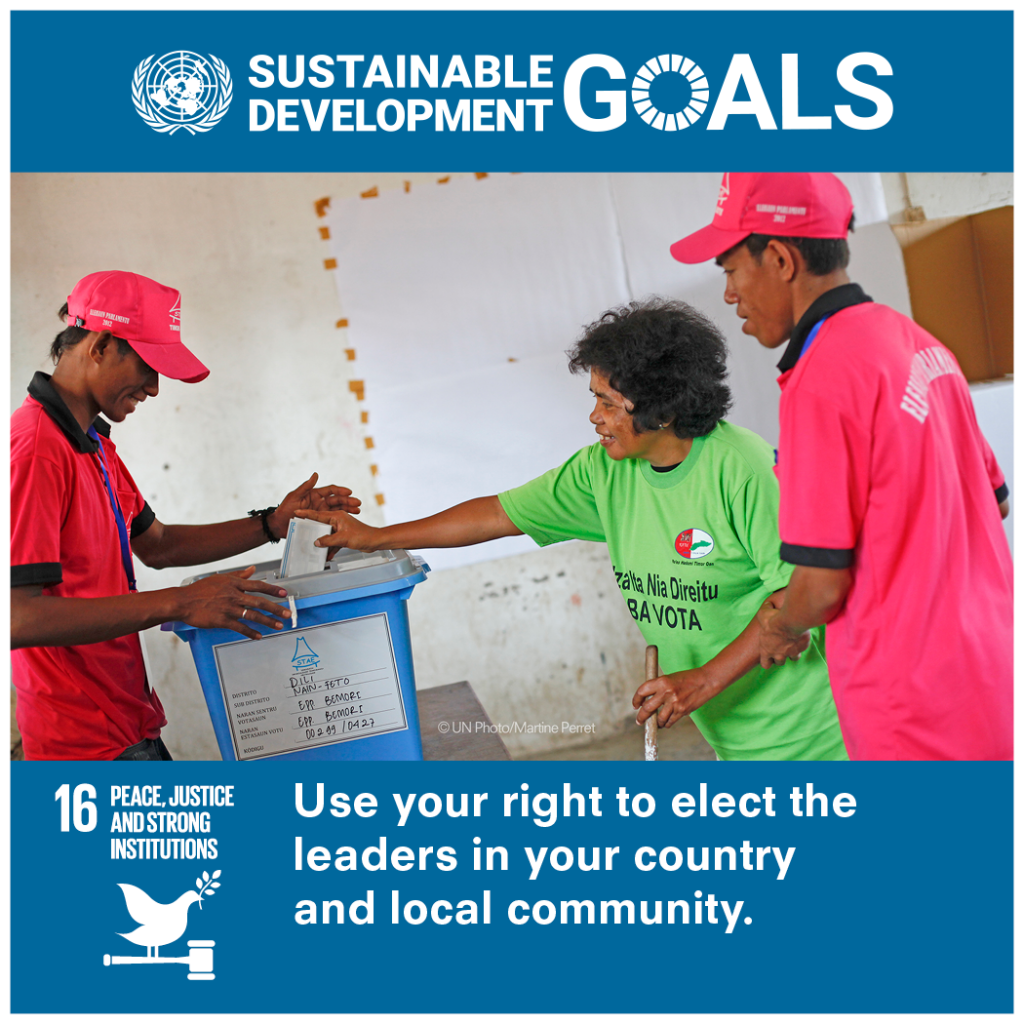My spare part for my coffee maker arrived from Italy. I needed to replace my single cup maker – I needed to drink weaker coffee. Now back on to a reasonable strength brew. It was raining today so I decided to have a daytime walk – great – nobody around.
Tonight the SDG is number 16 Peace, Justice and Strong Institutions or to give it the full title “Promote peaceful and inclusive societies for sustainable development, provide access to justice for all and build effective, accountable and inclusive institutions at all levels”

The individual targets are:
- Significantly reduce all forms of violence and related death rates everywhere
- End abuse, exploitation, trafficking and all forms of violence against and torture of children
- Promote the rule of law at the national and international levels and ensure equal access to justice for all
- By 2030, significantly reduce illicit financial and arms flows, strengthen the recovery and return of stolen assets and combat all forms of organized crime
- Substantially reduce corruption and bribery in all their forms
- Develop effective, accountable and transparent institutions at all levels
- Ensure responsive, inclusive, participatory and representative decision-making at all levels
- Broaden and strengthen the participation of developing countries in the institutions of global governance
- By 2030, provide legal identity for all, including birth registration
- Ensure public access to information and protect fundamental freedoms, in accordance with national legislation and international agreements
- Strengthen relevant national institutions, including through international cooperation, for building capacity at all levels, in particular in developing countries, to prevent violence and combat terrorism and crime
- Promote and enforce non-discriminatory laws and policies for sustainable development
A lot of these targets seem to be about criminal acts and a sound legal and political base for society. But there are two that stand out for me. The film Selma comes to mind – restricting the ability to participate in civil society by some means. In fact as we near the 4th July it is worth thinking about the USA revolutionary cry “no taxation without representation”.
A quarter of all children under 5 have no birth registration. Without birth registration how do you register for anything (like the ability to vote). One charity that is working to improve the situation is Toybox.
The second area are the discriminatory nature of some systems. In Selma it was racial bias in the voting system. Of course this is all gone with the victory Martin Luther King won. Or is it? In the recent votes in Kentucky the number of polling stations were cut by 95% People were taking an hour to find parking and an hour to get in to the polling stations.
Perhaps the saddest thing is that we take a lot of these institutions for granted . We complain about them, we ignore them, but actually they are available and answerable to us. We need to vote.
There are a number of concerning indicators – such as the fast growth of online sexual abuse (from 1 million to 45 million between 2014 to 2018). With the large companies pulling adverts from on-line channels perhaps this is our big chance to clean up the internet.
Another difficult statistic is the number of people in prison that have not been sentenced. We are sure “those” countries are bad, but in Europe there are two countries where there are more than 40% of people in prison who have not been sentenced – and Canada is close behind. In England and Wales this amounts to only 11%.
Maybe a letter to your MP on cleaning the internet might be appropriate – and remember to vote – even if it is just to spoil your vote.
